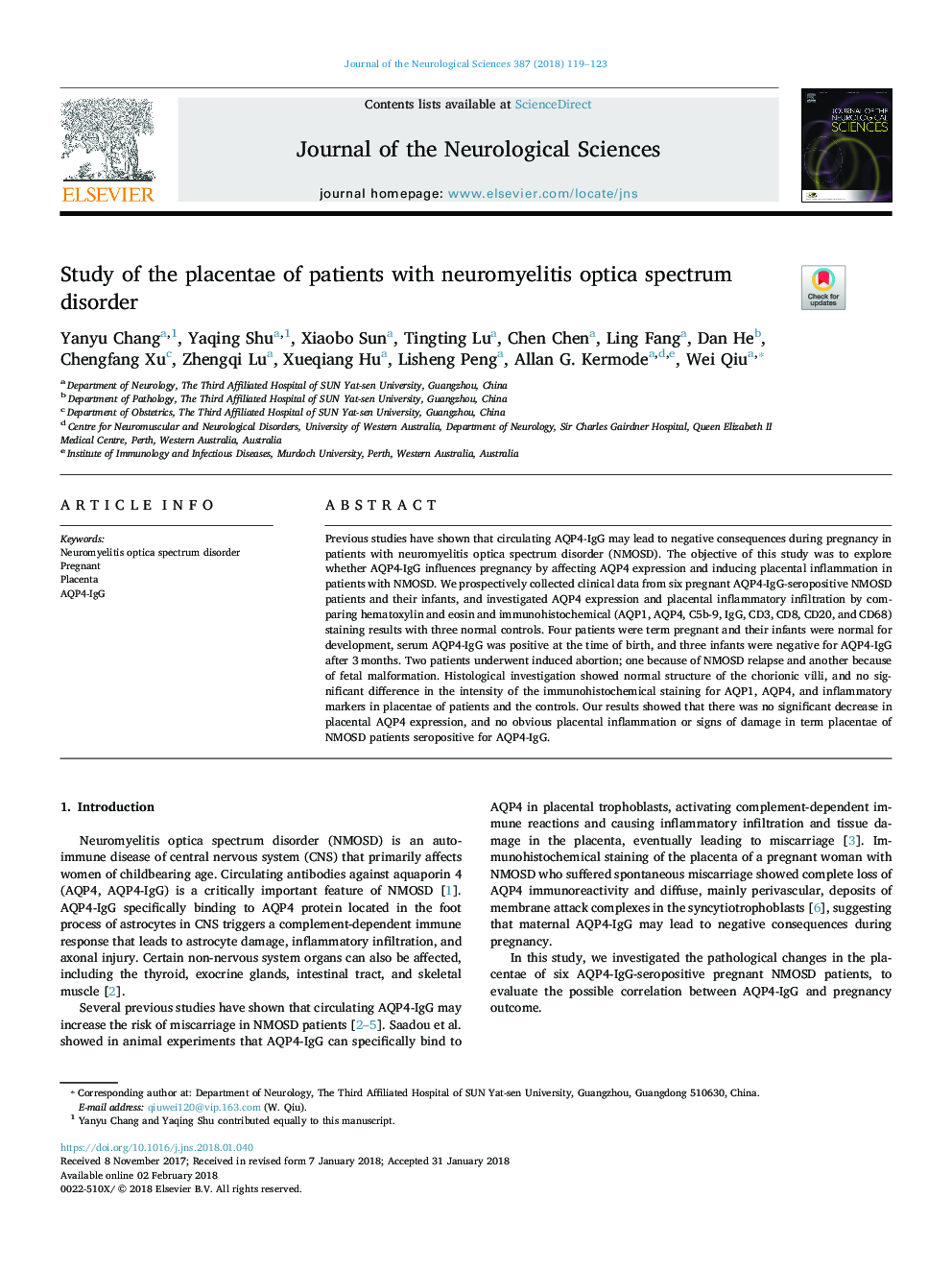| Article ID | Journal | Published Year | Pages | File Type |
|---|---|---|---|---|
| 8272712 | Journal of the Neurological Sciences | 2018 | 5 Pages |
Abstract
Previous studies have shown that circulating AQP4-IgG may lead to negative consequences during pregnancy in patients with neuromyelitis optica spectrum disorder (NMOSD). The objective of this study was to explore whether AQP4-IgG influences pregnancy by affecting AQP4 expression and inducing placental inflammation in patients with NMOSD. We prospectively collected clinical data from six pregnant AQP4-IgG-seropositive NMOSD patients and their infants, and investigated AQP4 expression and placental inflammatory infiltration by comparing hematoxylin and eosin and immunohistochemical (AQP1, AQP4, C5b-9, IgG, CD3, CD8, CD20, and CD68) staining results with three normal controls. Four patients were term pregnant and their infants were normal for development, serum AQP4-IgG was positive at the time of birth, and three infants were negative for AQP4-IgG after 3â¯months. Two patients underwent induced abortion; one because of NMOSD relapse and another because of fetal malformation. Histological investigation showed normal structure of the chorionic villi, and no significant difference in the intensity of the immunohistochemical staining for AQP1, AQP4, and inflammatory markers in placentae of patients and the controls. Our results showed that there was no significant decrease in placental AQP4 expression, and no obvious placental inflammation or signs of damage in term placentae of NMOSD patients seropositive for AQP4-IgG.
Related Topics
Life Sciences
Biochemistry, Genetics and Molecular Biology
Ageing
Authors
Yanyu Chang, Yaqing Shu, Xiaobo Sun, Tingting Lu, Chen Chen, Ling Fang, Dan He, Chengfang Xu, Zhengqi Lu, Xueqiang Hu, Lisheng Peng, Allan G. Kermode, Wei Qiu,
